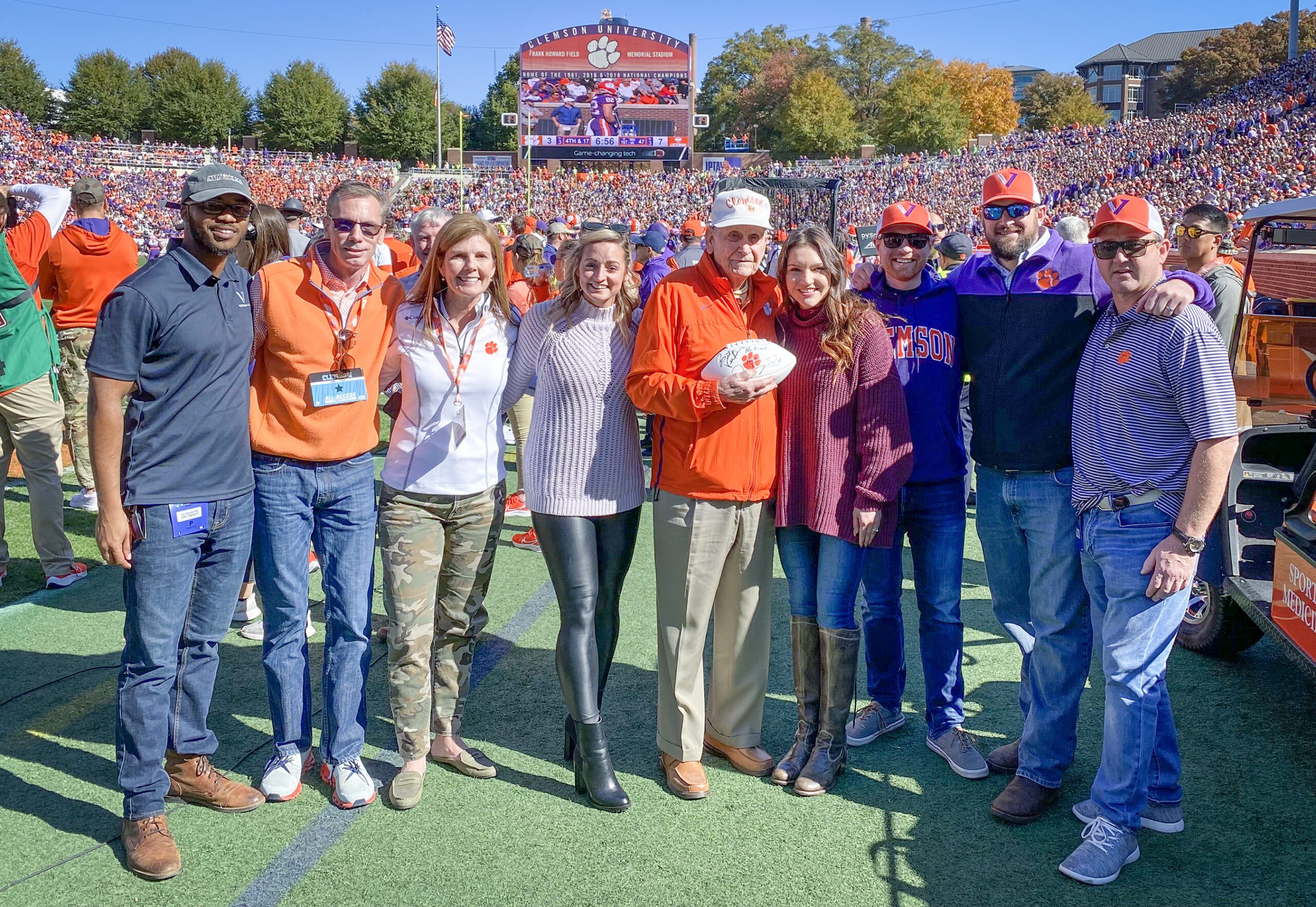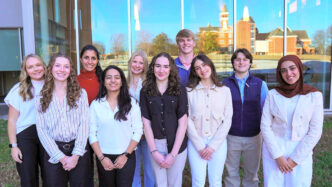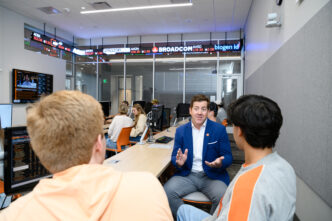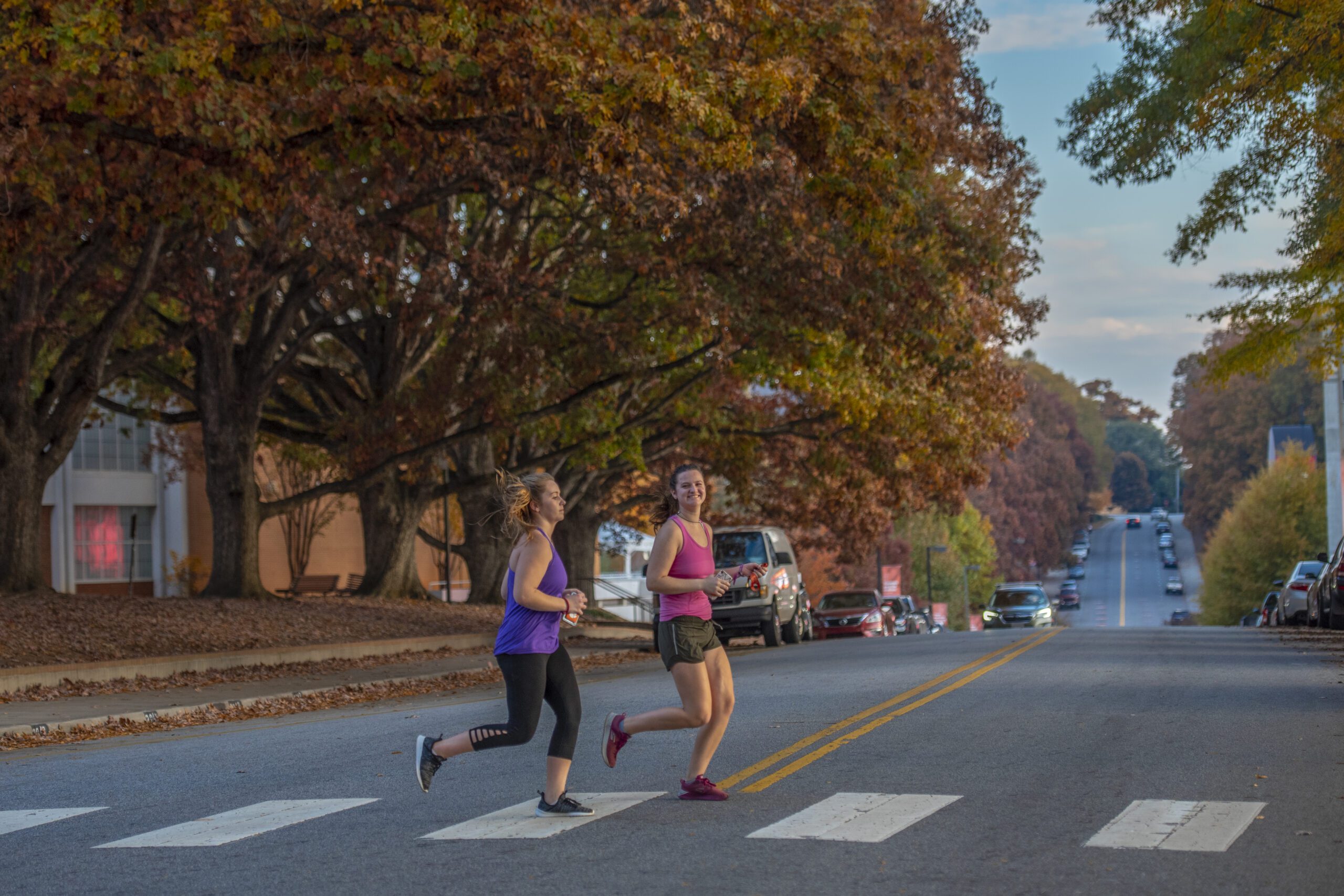Tyler Warren tried to join the Marine Corps on Sept. 12, 2001. He was not alone. The day after 9/11 was a record day for U.S. military recruiters. The line to get into the recruiting station in Fullerton, California, stretched around the block, but that did not deter him for one second. He was prepared to give up everything.
He couldn’t believe it when he got declined. The titanium hardware in his leg from a jet ski accident on Patrick Henry Reservoir when he was a young boy growing up in East Tennessee was a no-go for the Marines.
Warren was frustrated but undeterred. He would find another way.
He figured he’d have a better chance back home, so he dropped out of Fullerton Junior College, the West Coast school he was attending, quit the football team and left his job as a supervisor at Abercrombie and Fitch.
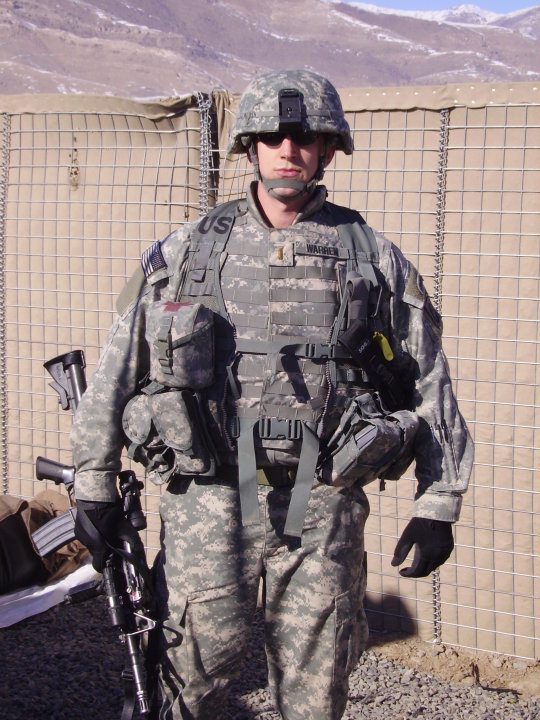
“My mom flew out to California, we drove all my stuff back to Seneca, and I transferred into Clemson University,” said Warren. Joining the military was his dream, and he was confident he could find a major and an opportunity with the U.S. Army officer candidate school with a college degree. He was right.
He graduated from Clemson in 2005 with a sociology degree and emphasis in criminal justice and went straight into the Army as an infantry officer. Driven by his ambition to be one of the very best, he completed both Airborne and Ranger schools, two of the toughest training courses for which soldiers can volunteer. Once he was officially an airborne Ranger, he was attached to the storied 82nd Airborne Division. It was 2007, the height of both wars in Iraq and Afghanistan. He arrived at Fort Bragg and immediately deployed to Afghanistan with his new unit — the first of two deployments he would complete during a seven-year Army career. In 2010, he was selected for the Special Forces and began training to be one of the most elite warfighters on Earth, but a torn Achilles tendon threw a monkey wrench into that mission. He made every effort to stay in the fight, but the Army medically discharged him in 2013.
The abrupt end of his military career left him reeling.
By then, he was married to his wife Rachel, and went to work selling medical devices for Johnson & Johnson in Charlottesville, Virginia. It was a job but not a passion. After three years, the couple decided to move back to the Upstate to be closer to home and start a family. That’s when Warren decided to take his future into his own hands and enroll in Clemson’s MBA in Entrepreneurship and Innovation program (MBAe). He earned his MBA in 2017, 10 years after first reporting to Fort Bragg.
Seeing other veterans’ rocky transition from soldier to civilian left a mark on him. He wanted to use his new degree to help others have a smoother go, so he teamed up with Neil Johnson ‘97, a fellow Clemson graduate (in mechanical engineering) and Navy veteran, and started a business to do just that.
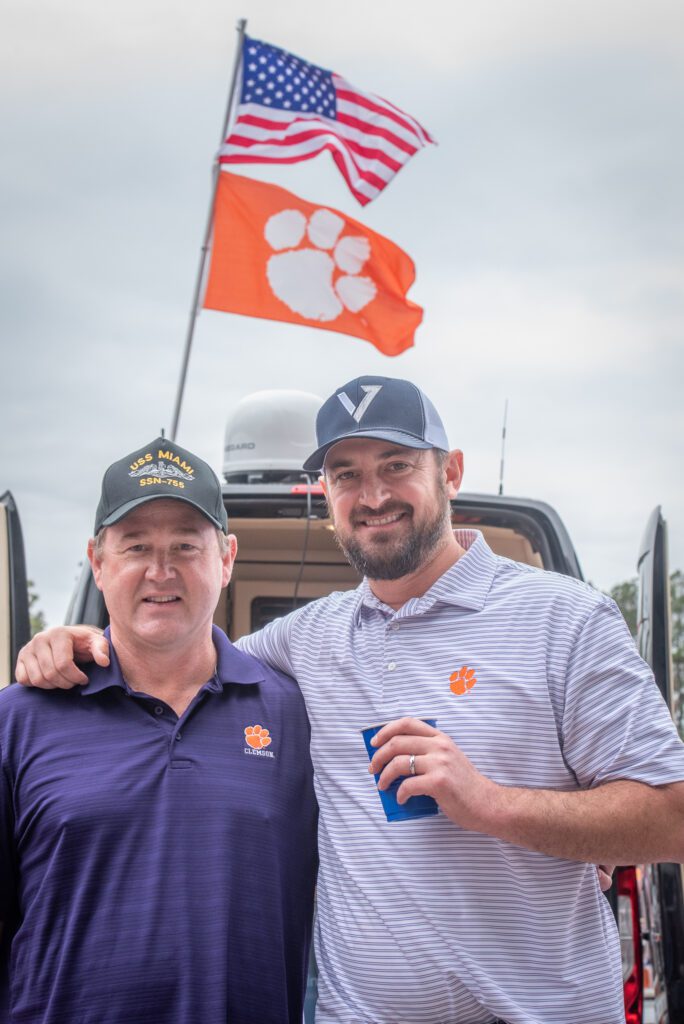
Veteran One is a tech company that matches veterans with careers that capitalize on their unique skill sets.
“The short explanation is it’s an Indeed for veterans,” said Warren, referencing the popular employment website that connects businesses with prospective employees. “But our vision goes a lot deeper than that. I wanted Veteran One to be the bridge that makes the transition into civilian careers easy for veterans who might not realize how valuable their experience is in the corporate world.”
The process is easy and free for veterans searching for a new role. After signing up, they access the new platform with their LinkedIn, Google or Facebook accounts. Then Veteran One technology auto-fills the user’s profile and creates resumes for them. Veteran One also provides free personality and aptitude testing to match the right veteran with the right company more accurately.
The design turned out to be successful right away.
“I got 84 guys and gals jobs in 2018,” said Warren. “Neil said, ‘Let’s not do 84. Let’s do 84,000!’ That was his mindset. So, we took what I was doing and built up the technology around it. I use a lot of principles from the MBAe program. Neil’s our visionary and financier, and I’m the boots-on-the-ground head operator.”
Today more than 7,000 veterans are signed up for Veteran One’s services, and the number is growing rapidly.
Former Army staff sergeant and infantry sniper Ross Alewine is a Veteran One success story. He retired from the Army in 2018 on his 30th birthday and, emotionally reeling, found his way to Warren’s office.
“He was in a bad spot,” said Warren. “He had a cast on his hand and hadn’t slept in a couple of days. I said, ‘Let’s go get something to eat,’ and we went from there.”
“I got integrated with Veteran One, and it put me on a path and gave me a purpose,” said Alewine. “They let me know that as an infantry sniper, I was not just good for shooting a gun and kicking doors down. They showed me I actually have a lot of other skill sets, like management and supervision, and that got me to where I am now.”
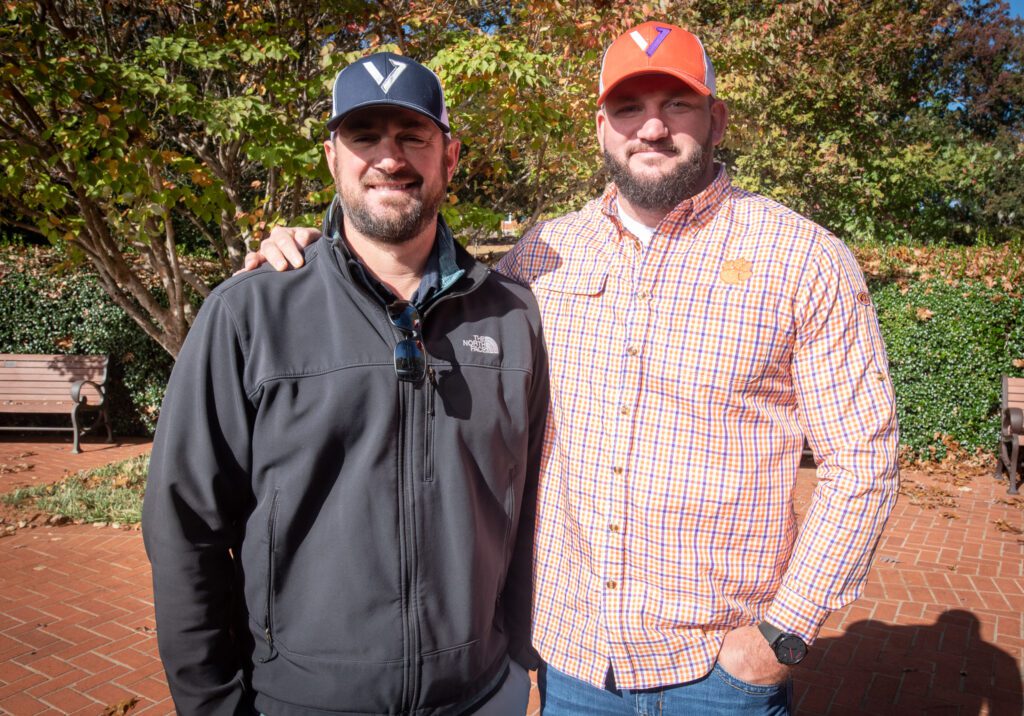
Today, Alwine is the assistant sports director for the Army Reconditioning Adaptive Sports Program and a champion competitor in Highland Games competitions.
Former Marine Sgt. Marc Shen, an infantry machine gun crewman from 1993 to 2001, discovered Veteran One after a few rough years post-service. A single father, he was living in South Carolina and unemployed after the Upstate business he worked for folded.
“With no income, an 11-year-old son and no future, I found my way to working at a veterans service organization (VSO), and that’s where I met Tyler Warren,” said Shen. “We did a short root-cause assessment and concluded employment was the most critical aspect of success for a transitioning veteran. We also mutually agreed most VSOs were not adequately addressing this primary pillar of success.”
When Warren departed the VSO to start Veteran One, Shen was one of the first people to sign up. Within a matter of weeks, he landed a full-time job in law enforcement.
Now that Shen had a steady job, he set his sights on fulfilling another life goal: owning a house. Veteran One helped him with that, too.
“They took my 15-year plan and made it happen overnight,” said Shen, adding that it was not as easy as it sounds. “It is important to know Veteran One does not give away funding. They don’t do handouts. They expect each candidate to do 80 percent of the work. Their methodology encapsulates that old adage of teaching a man to fish, not giving him a fish. This builds long-term sustainability, self-worth and independence, and it ultimately provides the veteran with a new mission. That’s the key because we are all mission-oriented. Without a mission, many of us fall into depression, anger and, ultimately, trouble with the law. I’ve seen both sides of this journey. The tangible benefits of employment for a transitioning veteran is the difference between sustained success, jail or the morgue.”
Veteran One outreach director Blair Williams, who received a Bachelor of Science in food science and human nutrition from Clemson in 2019, said Veteran One’s system is much more effective than the average job site because, as veterans, their applicants stand out.
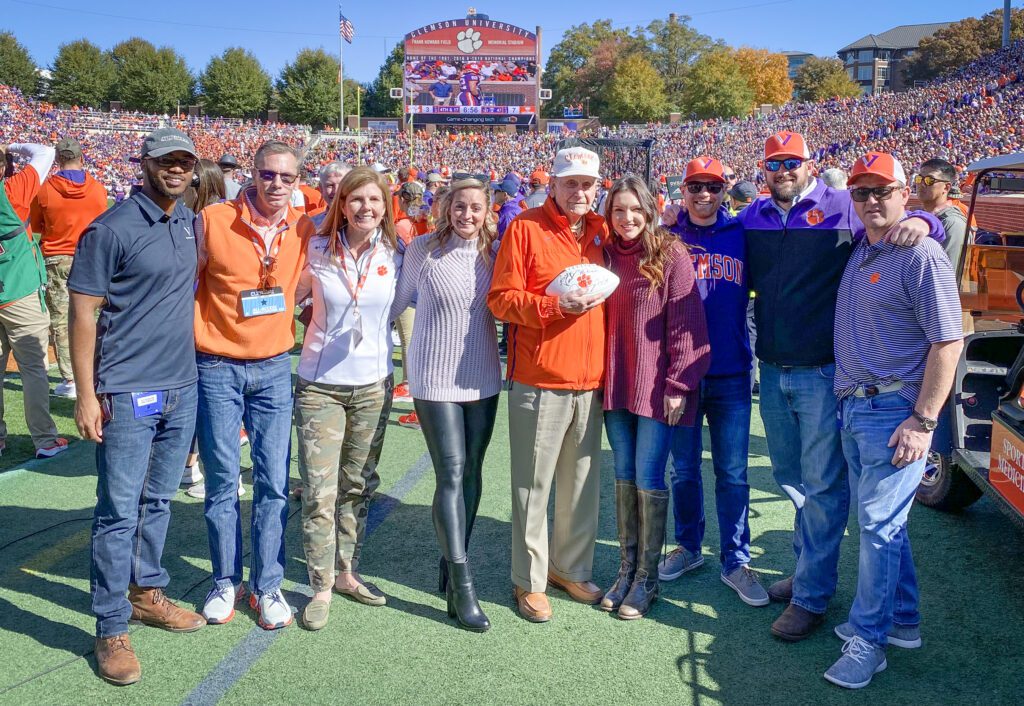
“Applicants can get lost in any hiring platform, and not just anyone can stand out in a highly competitive job market,” said Williams. “Veteran One can be a beneficial hiring platform for any company. Hiring a veteran can help a company of any size stand out from the rest of the corporate world.”
Warren said the value of providing corporations with a ready-made talent pool of thoroughly vetted veterans cannot be understated.
“Employers who come to us know they are getting top-notch individuals who have the work ethic and discipline that only come from military service,” he said. “As soon as the business world discovered us, they lined up. So far, we’ve placed vets in positions in dozens of companies all over the world.”
Shen said the platform works because it’s about quality, not quantity.
“Success is not going from one handout to the next — it’s a career, a family, retirement and ultimately, a life to reflect on proudly.”

